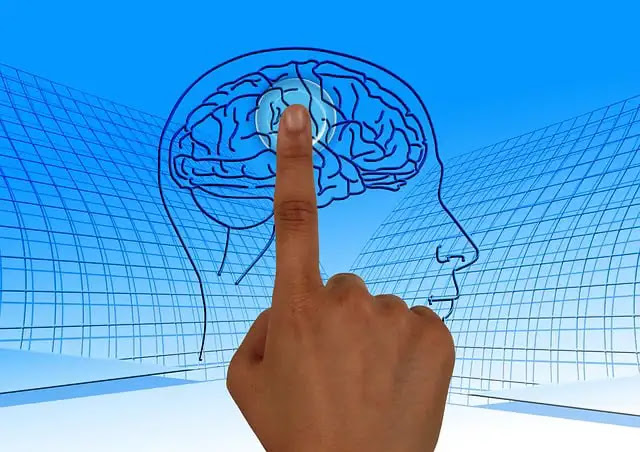The mind is a complex and fascinating subject that has captivated scientists and philosophers for centuries. With advancements in technology and research, our understanding of the mind has grown significantly over the years. From the structure of the brain to the intricacies of memory, there is a wealth of fascinating facts to discover about the mind. In this article, we explore 50 interesting and thought-provoking facts about the mind.
50 Fascinating Facts about the Mind: From Neurons to Synesthesia
- The mind is defined as the set of cognitive faculties including consciousness, perception, thinking, judgment, and memory.
- The study of the mind is called psychology.
- The human brain contains around 100 billion neurons.
- The brain's prefrontal cortex is responsible for executive functions such as decision making and problem solving.
- The hippocampus is a brain structure important for memory and learning.
- The amygdala is involved in emotion processing and fear response.
- Neuroplasticity is the brain's ability to change and adapt.
- The mind-body problem is the philosophical question of how the mind and body are related.
- Dualism is the theory that the mind and body are separate entities.
- Materialism is the theory that the mind is a product of the physical brain.
- Consciousness is the state of being aware of one's surroundings and thoughts.
- Sleep is an essential state of unconsciousness that allows the brain to rest and consolidate memories.
- Dreaming occurs during the rapid eye movement (REM) phase of sleep.
- Meditation is a practice that can change the state of consciousness and improve well-being.
- Mindfulness is a form of meditation that involves being present in the moment.
- Hypnosis is a state of altered consciousness characterized by suggestibility and relaxation.
- Mental illness refers to a wide range of disorders that affect mood, behavior, and thinking.
- Depression is a common mental illness characterized by persistent sadness and loss of interest in activities.
- Anxiety disorders are a group of disorders characterized by excessive and persistent worry or fear.
- Schizophrenia is a severe mental illness characterized by disordered thinking, emotions, and behavior.
- Attention-deficit/hyperactivity disorder (ADHD) is a neurodevelopmental disorder characterized by inattention, hyperactivity, and impulsivity.
- Autism spectrum disorder (ASD) is a neurodevelopmental disorder characterized by social communication difficulties and restricted, repetitive behaviors.
- Bipolar disorder is a mental illness characterized by alternating periods of mania and depression.
- Substance abuse disorders are a group of disorders characterized by the compulsive use of drugs or alcohol despite negative consequences.
- Psychotherapy is a type of treatment that involves talking with a mental health professional to improve mental health.
- Cognitive behavioral therapy (CBT) is a type of psychotherapy that focuses on changing negative thought patterns and behaviors.
- Psychopharmacology is the study of how drugs affect mental health.
- Antidepressants are drugs that can be used to treat depression.
- Antipsychotics are drugs that can be used to treat schizophrenia.
- Anxiolytics are drugs that can be used to treat anxiety disorders.
- Memory is the ability to store and retrieve information.
- Short-term memory is also known as working memory and is responsible for holding information temporarily.
- Long-term memory is responsible for storing information for longer periods of time.
- Episodic memory is the type of memory responsible for recalling specific events and experiences.
- Semantic memory is the type of memory responsible for recalling facts and concepts.
- Procedural memory is the type of memory responsible for recalling how to do things, such as riding a bike.
- Amnesia is a condition characterized by memory loss.
- Alzheimer's disease is a degenerative brain disorder that causes memory loss and cognitive decline.
- Dementia is a group of conditions characterized by memory loss and cognitive decline.
- Learning is the process of acquiring knowledge and skills.
- Classical conditioning is a type of learning where a neutral stimulus is paired with a stimulus that naturally triggers a response, leading to the neutral stimulus alone triggering the same response.
- Operant conditioning is a type of learning where behaviors are reinforced or punished, leading to an increase or decrease in the frequency of those behaviors.
- Observational learning is a type of learning where behaviors are learned by observing others.
- Intelligence is the ability to acquire and apply knowledge and skills.
- The intelligence quotient (IQ) is a standardized test used to measure intelligence.
- Emotional intelligence is the ability to understand and manage one's own emotions and the emotions of others.
- Creativity is the ability to generate new and valuable ideas.
- Perception is the process of interpreting sensory information from the environment.
- Sensory processing disorder is a condition where the brain has difficulty processing and responding to sensory information.
- Synesthesia is a condition where stimulation of one sensory pathway leads to automatic, involuntary experiences in another sensory pathway.
The mind is a powerful and mysterious entity that continues to intrigue us. As we learn more about the inner workings of the brain, we gain new insights into our thoughts, feelings, and behaviors. From the plasticity of the brain to the effects of meditation, these 50 facts about the mind offer a glimpse into the incredible complexity of this fascinating subject. Whether you're interested in psychology, neuroscience, or simply want to know more about how your own mind works, there is something here for everyone.














0 Comments